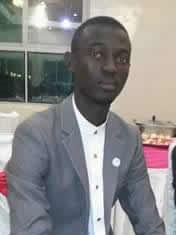Lunda, Ndembu in Angola

Photo Source:
Anonymous
|
Send Joshua Project a map of this people group.
|
| People Name: | Lunda, Ndembu |
| Country: | Angola |
| 10/40 Window: | No |
| Population: | 21,000 |
| World Population: | 21,000 |
| Primary Language: | Lunda |
| Primary Religion: | Christianity |
| Christian Adherents: | 94.00 % |
| Evangelicals: | 20.00 % |
| Scripture: | Complete Bible |
| Ministry Resources: | Yes |
| Jesus Film: | Yes |
| Audio Recordings: | Yes |
| People Cluster: | Bantu, Central-South |
| Affinity Bloc: | Sub-Saharan Peoples |
| Progress Level: |
|
Introduction / History
The Ndembu Lunda are a subgroup of the larger Lunda people and speak the Lunda (also called Chilunda, including the Ndembu dialect) language, a Bantu language used in Angola, Zambia, and the Democratic Republic of the Congo.
Their oral traditions trace their origins through successive migrations, moving from areas such as what is now DR Congo into Angola, Zambia and beyond. Historically they were part of the Lunda Kingdom / Empire, which exerted political, cultural, and economic influence across central Africa. Over time, some Ndembu broke away or migrated, adapting to new regions while retaining many of their traditional clan, chieftainship, and social structures.
What Are Their Lives Like?
The Ndembu live in small villages often clustered by kinship, with agriculture, hunting, and small?scale livestock keeping important to their subsistence. They cultivate crops such as maize, millet, beans, cassava, and groundnuts, adjusting their cultivation methods to the local environment, which depends on rainfall and soil fertility. Many families keep goats, chickens, or small livestock.
Their social life is structured by clans, matrilineal descent in many Ndembu communities, and by the authority of chiefs and elders. Women often move to their husbands' villages after marriage; cross-village ties through kinship are significant. Access to infrastructure—such as formal schooling, health clinics, roads—is variable. In remote or rural border areas, many Ndembu experience limited access to medicine, quality schools, and economic opportunities. In addition, increasing exposure to outside languages (like Portuguese in Angola, or major regional trade languages) affects younger generations, with language shift and mixed identity becoming more common.
What Are Their Beliefs?
Traditional Ndembu cosmology includes belief in a supreme being (often distant in daily affairs), ancestor spirits, spirit forces, and spirits of deceased relatives who remain involved in the life of the living. Illness, misfortune, and community crises are often understood in spiritual terms, such as affliction inflicted by ancestors or spirits, or by sorcery or witchcraft. Healers or ritual specialists play a role in mediating with these unseen forces, providing healing, divination, and social restoration.
Christianity has significant presence among the Ndembu. Many identify as Christian, and Christian institutions are present. However, syncretism (blending of Christian teaching with traditional spiritual practices) remains common. Some traditional beliefs and ritual practices persist even among Christian adherents.
What Are Their Needs?
The Ndembu people need deeper discipleship that helps Christian believers disentangle traditional spiritual practices that conflict with biblical faith, while honoring culturally meaningful aspects in ways consistent with the gospel.
There is also a pressing need for teaching and resources on spiritual warfare, deliverance, and healing, especially to address fears surrounding spirit affliction, witchcraft accusations, and ancestral obligations that heavily influence both individual and community life.
Access to community development is crucial—such as improved education (especially in rural or remote areas), healthcare, clean water, roads, and economic opportunities. These material needs have a spiritual impact, as poverty, illness, and isolation can limit openness to the gospel and hinder church maturity.
Prayer Points
Pray for a deep spiritual awakening among the Ndembu Lunda people—that they may move beyond nominal Christianity into a vibrant, living faith in Christ, one that brings true transformation and power.
Ask the Lord to break every chain of fear—fear of ancestors, spirits, witchcraft, and all spiritual strongholds—bringing healing, freedom, and deliverance through the gospel.
Pray that God will raise up Ndembu leaders—pastors, teachers, and elders—who are firmly rooted in Scripture and equipped to shepherd with wisdom and love.
Pray for the Lord to raise up many to produce culturally relavant gospel music in their language.